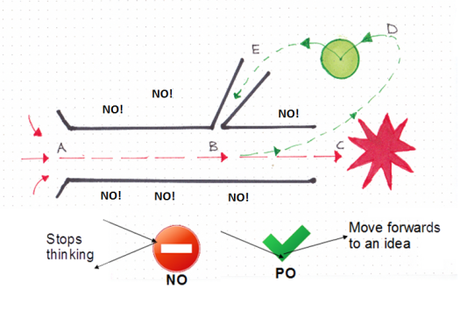Ego-eco blah blah
Most contributors to mitigating global change and sustainability are the usual “eco-conversationalists¨, repeating the same memes over and over again. There seems to be a whole circus of people talking about how bad it is, what disasters are coming our way, and that we need to get rid of fossil fuels. The worst are those who formulate goals, without specifying how they can be achieved, whether they actually lead to results and how to finance them. It is Eco-blah blah or perhaps Ego-blah blah: talking that makes you feel good and also brings social benefits. Eco-conversationalists are a huge group consisting of many politicians, business people, as well as informed and unformed environmentalists.

Nothing substantially seems to have changed since the publishing of the Club of Rome report in 1968 or the movie An Inconvenience Truth by Al Gore in 2006, except for many conferences, VN-resolutions, Climate Tops, and conferences, and seminars and workshops and …
Why are we still in such mess?
Mechanics
What has been since the Club of Rome and Al Gore the mechanics of mitigation Global Warming and Sustainability? How can we go beyond moral calls to action, to change the driving forces that perpetuate the status quo and prevent massive solutions? How can we change the mechanisms that regulate the behavior of societies? That is the process, technique, or system for achieving a result
Good intentions, but contradictory results
A couple decides to split up as friends. But friends warn her that divorced women, as practice shows, usually come out poor and that it is wise to take a lawyer anyway. If it does not help, it will not harm (anymore).
He then decides to take a lawyer, because you never know how smart and mean lawyers can be, his friends-with-experience say, and moreover, he already planned to do that, because sometimes over time, that they were together, she could be so persistent.

His lawyer makes a proposal for maintenance and, for the sake of certainty, asks a little more in case the judge finds the proposal unreasonable. Her lawyer does that, just to be sure. Both ex-partners are now greatly appalled by the unreasonable demand of the counterparty.
This is to the advantage of the lawyers, who are now doing everything they can to come up with arguments, complicate the matter, and thus display their professionalism. And can declare their fees.
The judge then determines the most reasonable proposal. At least one of the parties will feel that the other party has done wrong. In hindsight, he/she is really a bastard/bitch, and has always been so.
What is the mechanism here?
Alternative mechanisms?
Can we design another, more constructive mechanism that leads to a more satisfying outcome that completely removes the conflict between opposing interests?

An alternative approach, once devised by Edward de Bono, the originator of lateral (creative) thinking, is the following: Both parties (and possibly their lawyers) do their best to design the most reasonable offer from the counterparty. The judge chooses the most reasonable offer. Both offerings are reasonable, so neither party can be disappointed. It is also a lot easier for the judge. The procedure is faster, the lawyer costs cannot increase exorbitantly, the emotional damage can be reduced or, at least, controlled within reasonable boundaries…
Escaping the Eco-conversationalists
What have we taken for granted the last 50 years in the way we thought about how to counter global warming and increase sustainability? What can we learn from that to NOT do? What can we learn from that to do otherwise? What has been a seemingly ineffective mechanism for change?

Instead of assuming moving forward in a thinking pattern as usual, from A–> B to C, and getting the results we always had, let´s explore the possibility of another way of reaching change, f.i. B–> D–> E and designing an inventive approach.
In the next post, we will explore some possibilities to escape from thinking as usual that change will miraculously happen the way we tried earlier, in vain. That breaks away from more-of-the-same thinking?
Are there contours of approaches that break away from eco- conversationalists?
Related posts
How to Hack Assumptions. Our assumptions as the resources we think we need, the actions we do without question, the process we carry out in the same sequence every time, and the external factors we believe to be plain outside of our control.
Creating Innovation in Large Networks. Apart from traditional conferences, which try to spread and share knowledge, innovation and change are mostly attributed to networking and informal contacts; however, there are some ways to help to rely less on informal networking.
Discovering Patterns. Combining past experience, intuition, knowledge, and common sense, the ability to recognize patterns gives us the skill to predict what will happen next to a certain extent. When searching for information about a subject, we need to note similarities in the way people are thinking and approaching a subject.
